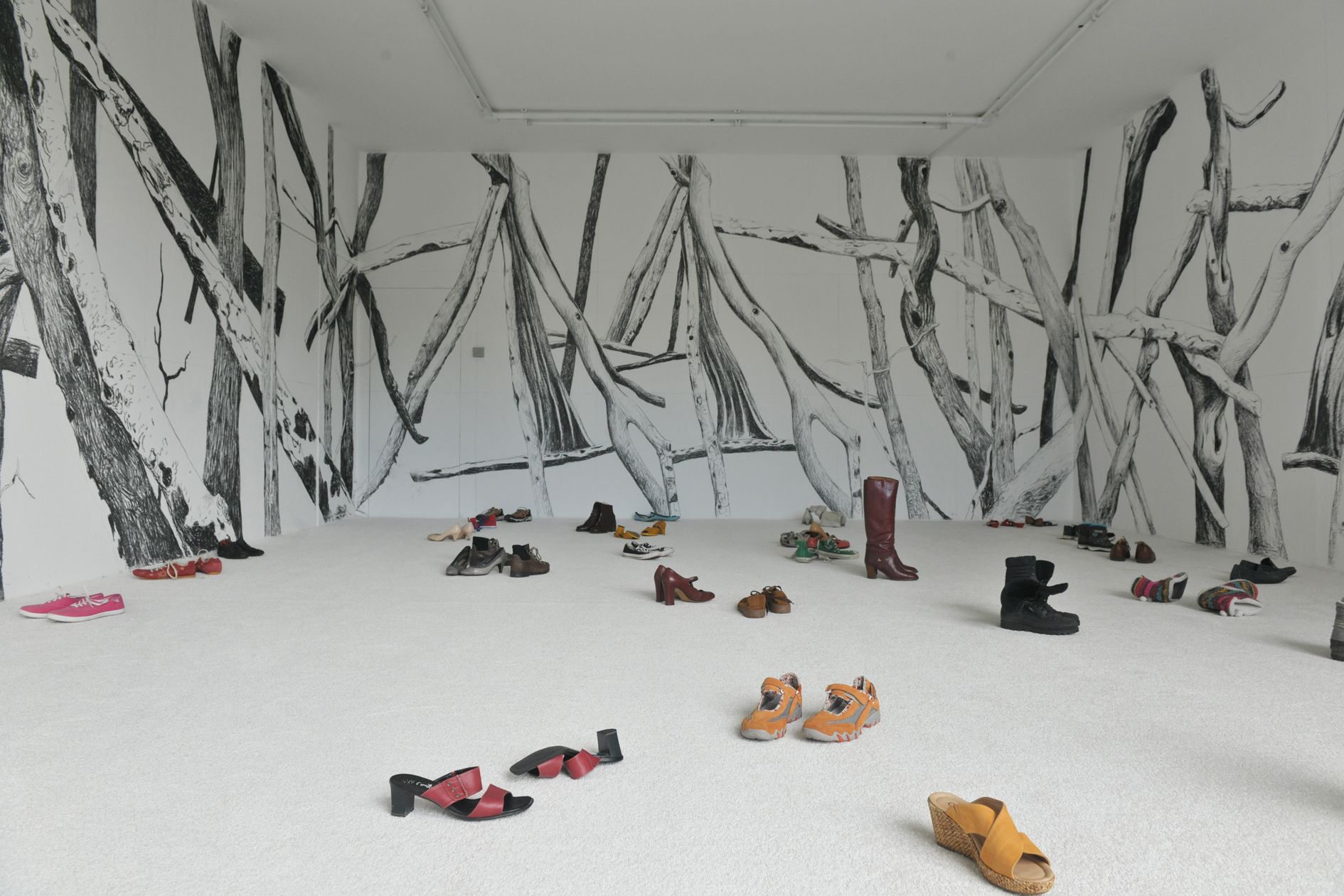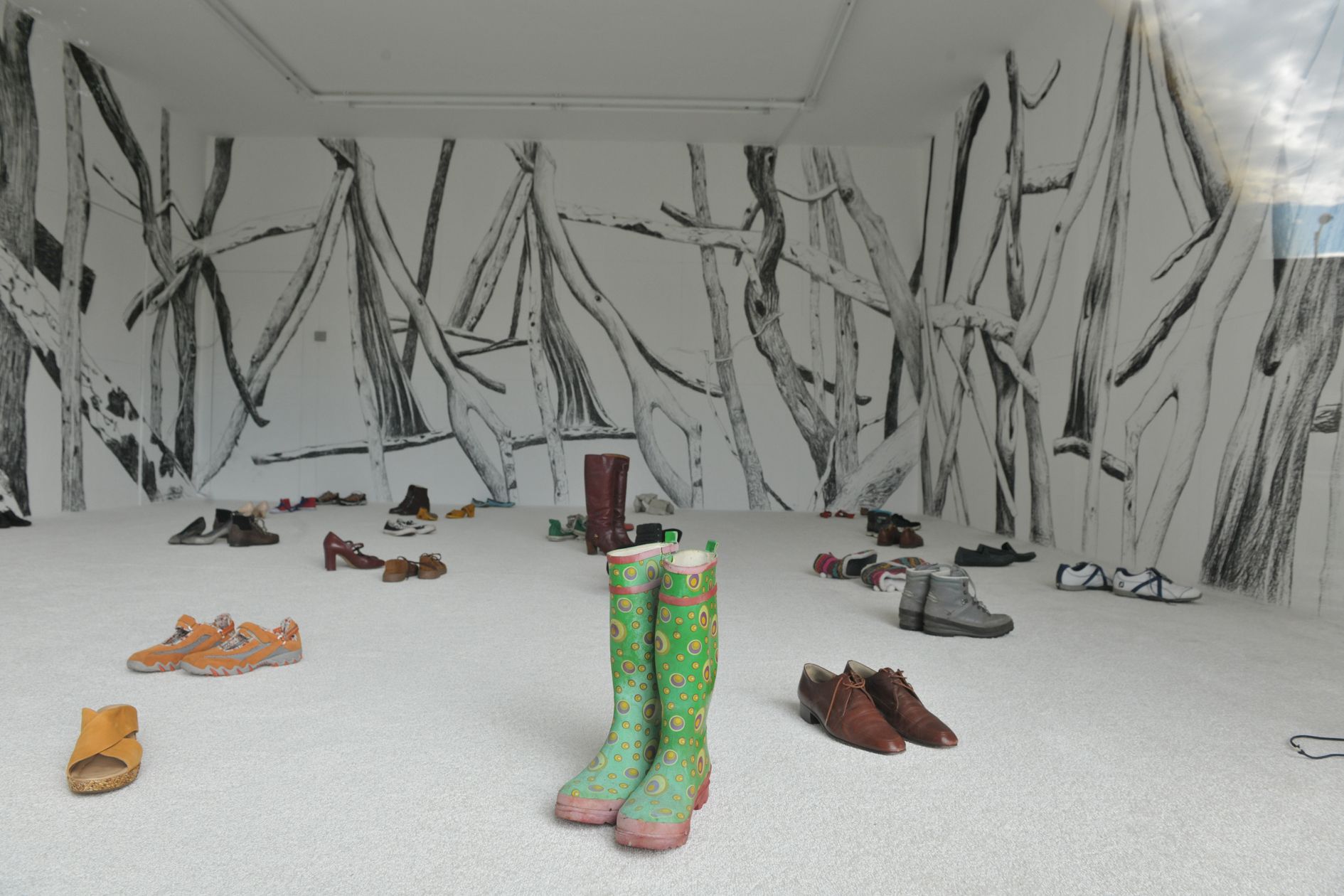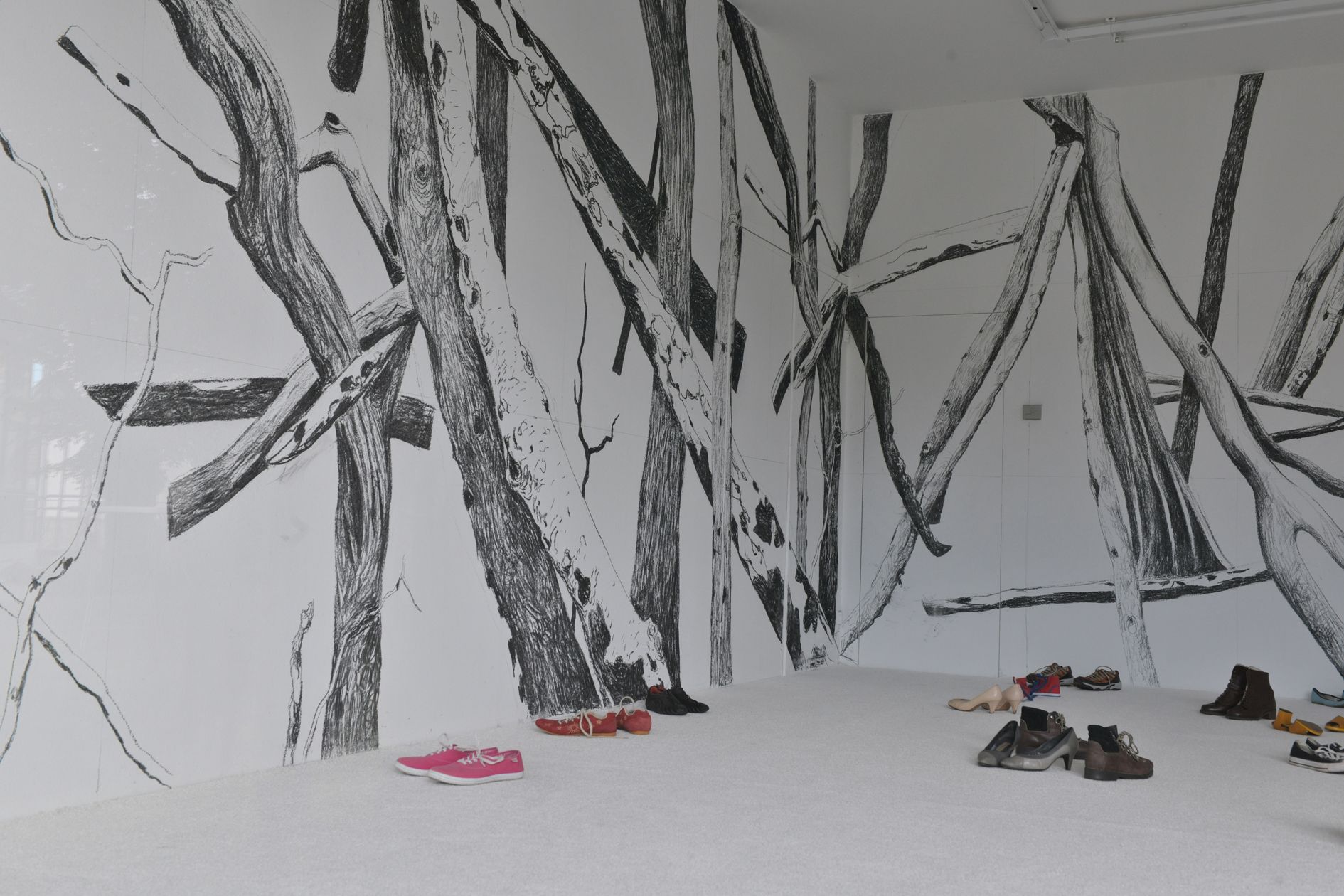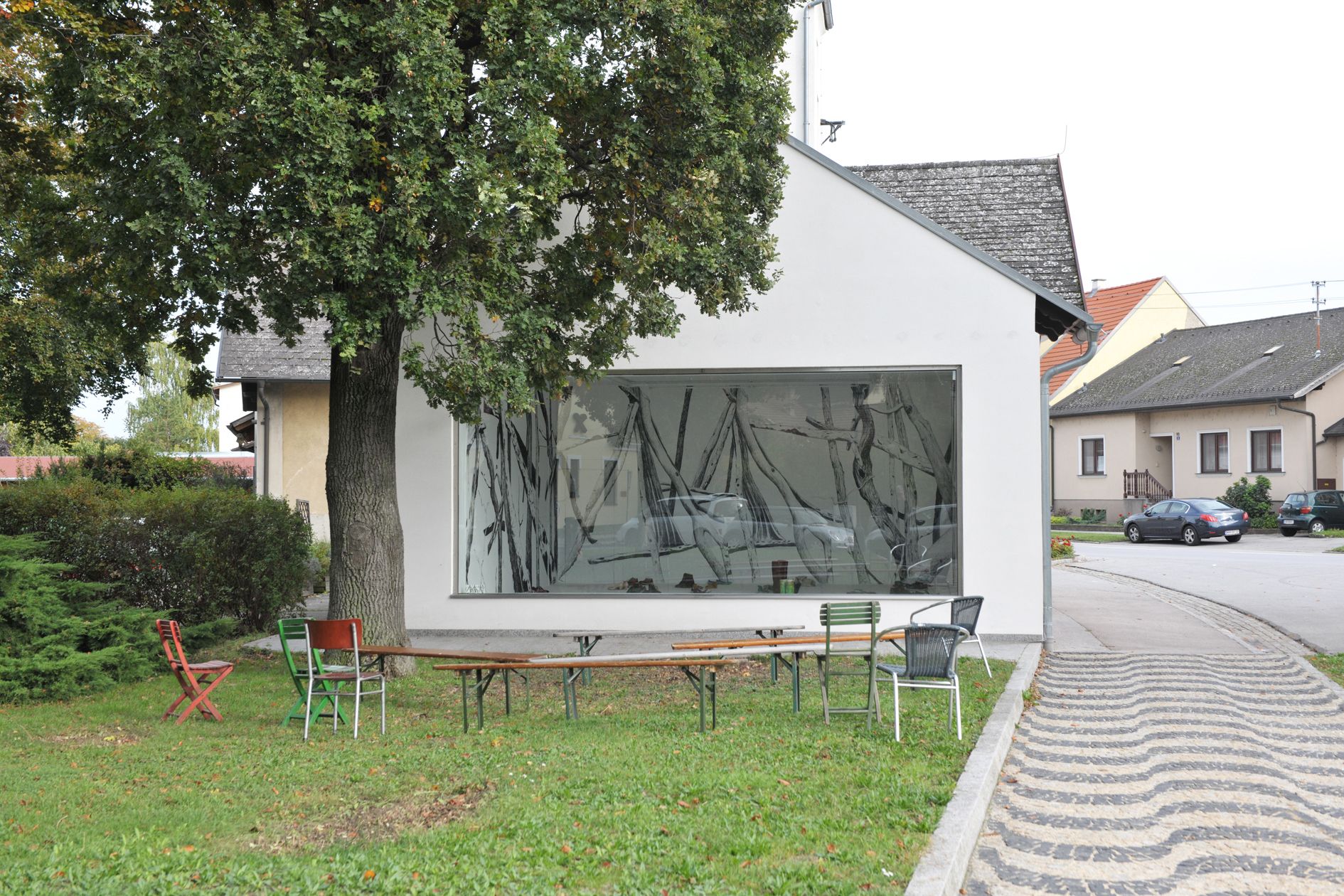Alois Mosbacher
:
Weikenwaldendorf
Back
Information
After remodeling an old fire station and turning it into an exhibition space for contemporary art, Michael Kienzer and a local Jury invited artists to create temporary installations that would last half a year and would also be visible from the outside through a large window. He thus transformed the entire building into a sculpture in public space.
When I was given the opportunity to show a work in the old fire department in Weikendorf, I immediately thought of another place that I often return to in my art. It’s more of a wooden cabin, but with a little imagination, you can recognize the formal similarities to the fire department in Weikendorf. The wooden cabin can be found in the forest in Massachusetts and has existed since 1845. It’s famous because the author Henry David Thoreau built it. Thoreau wanted to get away from industrialized mass society in the US, which was still a young country at the time, so he went to live in a secluded cabin near Walden Pond for two years. There, he wrote the book Walden , which is about this experiment and is still famous today. In this book, he describes his self-reliant and solitary life in the woods, how he worked, built his cabin, planted vegetables and grains, and developed his reformatory ideas that would later make him a pioneer of the ecology and counter culture movements. The town of Weikendorf may be too far from the lowland forests along the banks of the Morava River for it to be called a “Walden town,” or “forest town,” but the forest drawn on the walls of the art space transforms it into a place of intentions, reflections, and utopias – into a no-place (in the sense of the Old Greek ou-tópos ). The cabin near Walden is thus transplanted to Weikendorf. The town’s citizens are invited to put their shoes in the art space as manifestations of their hopes and dreams. (Alois Mosbacher)
I learned this, at least, by my experiment: That if one advances confidently in the direction of his dreams, and endeavors to live the life which he has imagined, he will meet with a success unexpected in common hours. He will put some things behind, will pass an invisible boundary.
(Henry David Thoreau )
Images (4)




